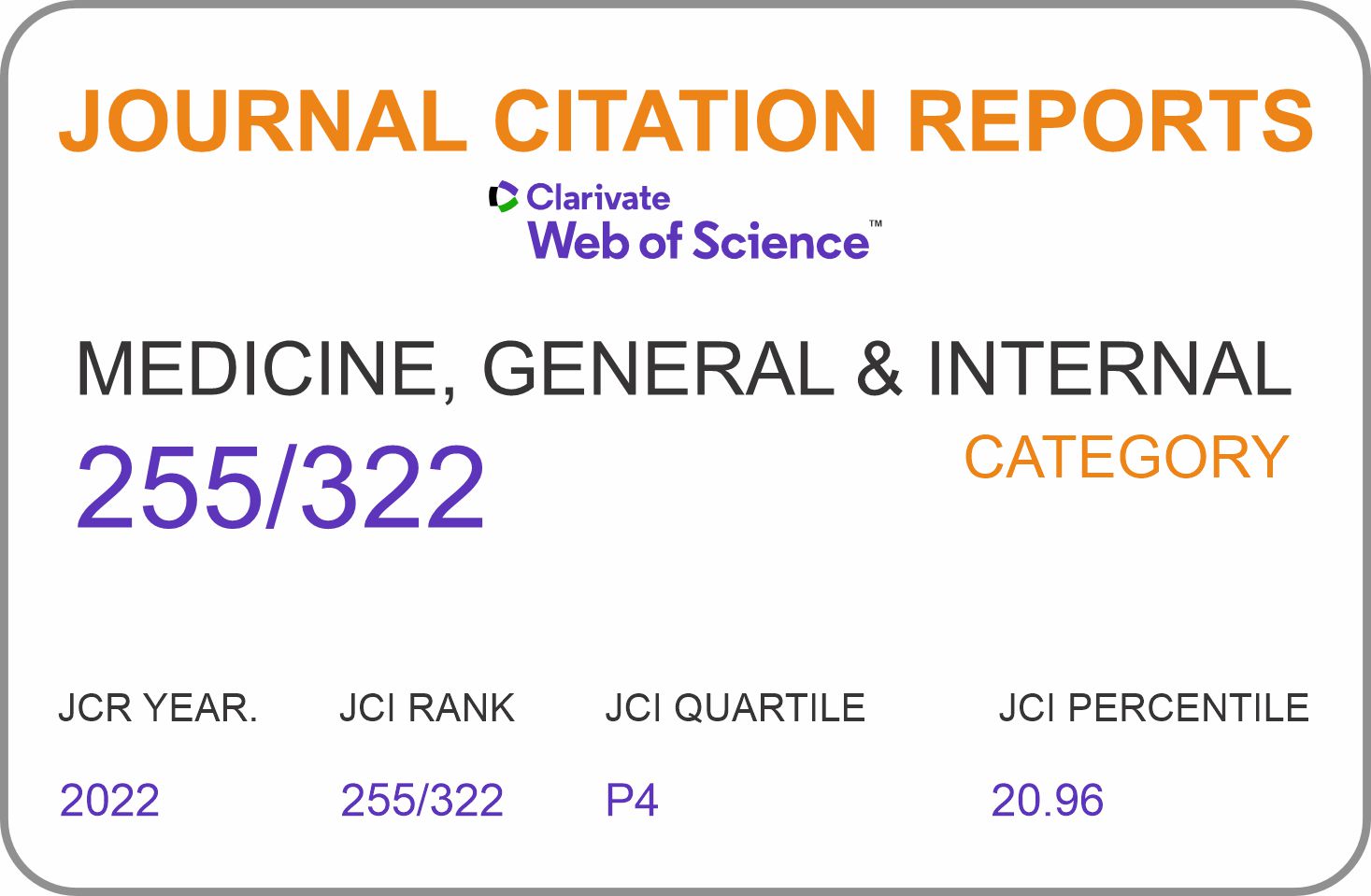Informed consent and use of biological samples from clinical care for research: A case in northern Peru Hospital
DOI:
https://doi.org/10.35434/rcmhnaaa.2023.163.1982Keywords:
Informed consent, Bioethics, Laboratory personnel, Clinical laboratory servicesAbstract
Objective: To describe the frequency and characteristics of the use of Informed Consent (IC) for the use of biological samples from clinical care for research purposes in a Peruvian hospital. Setting: Northern Peru Hospital. Material and methods: Cross-sectional descriptive study developed during 2018, in 50 laboratory workers, through an interview using a questionnaire validated by 5 bioethic experts. Results: 30/50 were women; mean years of service: 6.5; 42% biologists, 30% medical technologists, and 25% technicians; according to academic degree: 46% Bachelor, 26% Master and 24% technicians; 24/50 reported training in ethics, being: 15/26 (talks), 8/26 (short courses) and 3/26 (graduates); 76% know of the need for IC to use samples; 78% and 64% of those surveyed explain the procedure to hospitalized patients and relatives of unconscious patients, respectively; 74% of those surveyed explain the sampling; 24% report that sometimes/almost always, “keep part of the sample” without the patient's IC; 52% do not explain to the patient/relative the confidentiality of the information; 44% state that they always/sometimes carry out “additional analyzes to those requested” with the sample. Conclusion: there are deficiencies in the ethical training of the respondents, and despite knowing the importance of the IC for the use of biological samples intended for clinical care, its use for research was evidenced.
Downloads
Metrics
References
León-Jiménez FE, Ñique-Carbajal C, Arriaga-Deza E. Los exámenes de ayuda diagnóstica y los conflictos de interés en nuestros hospitales: ¿Corrupción enmascarada?. Rev. Cuerpo Med. HNAAA [Internet]. 6 de octubre de 2022 [citado 23 de noviembre de 2022];15(3). Disponible en: https://cmhnaaa.org.pe/ojs/index.php/rcmhnaaa/article/view/1318.
Pérez V. El Laboratorio Clínico en el sistema asistencial. Medicina de Familia. Semergen. 2011. Vol. 37. Núm. 3. 111-112. doi: 10.1016/j.semerg.2011.02.006.
Marodin G, França PH, Salgueiro JB, Motta ML, Tannous GS, Lopes AG. Alternatives of informed consent for storage and use of human biological material for research purposes: Brazilian regulation. Dev World Bioeth. 2014 Dec;14(3):127-31. doi: 10.1111/dewb.12012.
Marodina G, Salgueiro J, Motta M, Pacheco-Santos L. Brazilian guidelines for biorepositories and biobanks of human biological material. Rev Assoc Med Bras. 2013; 59(1):72-77.
Terrés-Speziale M. El código de ética de la Organización Panamericana de la Salud. Rev Mex Patol Clin. 2007; 54(1):6-11.
Instituto Nacional de Salud - Oficina General de Asesoría Técnica. Directiva para Muestras Biológicas en Ensayos Clínicos. INS/OGAT-V.01 Disponible en: https://www2.congreso.gob.pe/sicr/cendocbib/con4_uibd.nsf/FAEE1BB78667076905257A85005F589B/$FILE/Directiva_06_01_12.pdf
Asociación Médica Mundial. Declaración de la AMM sobre las consideraciones éticas de las bases de datos de salud y los biobancos. Disponible en: https://www.wma.net/es/policies-post/declaracion-de-la-amm-sobre-las-consideraciones-eticas-de-las-bases-de-datos-de-salud-y-los-biobancos/. Fecha de acceso: 16 de junio 2022.
Villarroel, R. (2013). Administración biopolítica de la intimidad en los biobancos. ActaBioethica, 19 (1), 39-47. http://dx.doi.org/10.4067/S1726-569X2013000100005
D’Abramo F, Schildmann J, Vollmann J. Research participants’ perceptions and views on consent for biobank research: a review of empirical data and ethical analysis. BMC Med Ethics. 2015; 16:60
Hospital Regional Lambayeque. Disponible en: https://www.regionlambayeque.gob.pe/web/?pass=MTc0MDAw&pass=MTc0MDAw. Fecha de acceso: 4 de junio 2022.
Beauchamp TL, Childress JF. Principles of bioethics. 7th ed. Oxford University Press; 2013
Sérole C, Auclair C, Prunet D, Charkhabi M, Lesage FX, Baker JS, Mermillod M, Gerbaud L, Dutheil F. The Forgotten Health-Care Occupations at Risk of Burnout-A Burnout, Job Demand-Control-Support, and Effort-Reward Imbalance Survey. J Occup Environ Med. 2021 Jul 1;63(7):e416-e425.
Diniz E, Bernardes SF, Castro P. Self- and Other-Dehumanization Processes in Health-Related Contexts: A Critical Review of the Literature. Review of General Psychology. 2019;23(4):475-495.
World Medical Association. World Medical Association Declaration of Helsinki: ethical principles for medical research involving human subjects. JAMA. 2013 Nov 27;310(20):2191-4. doi: 10.1001/jama.2013.281053. PMID: 24141714.
Superintendencia Nacional de Educación Superior Universitaria. Disponible en: https://www.sunedu.gob.pe/registro-nacional-de-grados-y-titulos/. Fecha de acceso: 16 de junio del 2022.
Pratt B, Bull S. Equitable data sharing in epidemics and pandemics. BMC Med Ethics. 2021 Oct 6;22(1):136. doi: 10.1186/s12910-021-00701-8.
Anane-Sarpong E, Wangmo T, Ward CL, Sankoh O, Tanner M, Elger BS. “You cannot collect data using your own resources and put It on open access”: perspectives from Africa about public health data-sharing. Dev World Bioeth. 2018;18(4):394–405.
Bezuidenhout L, Chakauya E. Hidden concerns of sharing research data by low/middle-income country scientists. Glob Bioeth. 2018;29(1):39–54.
Greely HT. The uneasy ethical and legal underpinnings of large-scale genomic biobanks. Annu Rev Genomics Hum Genet. 2007;8:343-64. doi: 10.1146/annurev.genom.7.080505.115721.
Ursin LO. Biobank research and the right to privacy. Theor Med Bioeth 2008;29:267–21. 21. Sgreccia, E. Manuale di bioetica (2 vol.) (3ª ed.) Vita e Pensiero, Milano, 1999.
Duffy T. The Flexner report—100 years later. Yale J Biol Med. 2011;84(3):269–76.
Universidad de Navarra. Facultad de Medicina. Deontología Biológica. Libro en Internet; Capítulo 5: El profesional de Biología. Disponible en: https://www.unav.edu/web/unidad-de-humanidades-y-etica-medica/material-de-bioetica/deontologia-biologica/capitulo-5. Fecha de acceso: 27 de junio 2022.
Downloads
Published
How to Cite
Issue
Section
Categories
License
Copyright (c) 2023 Emma Vanesa Arriaga-Deza, Antero Enrique Yacarini-Martínez, Franco Ernesto León-Jiménez

This work is licensed under a Creative Commons Attribution 4.0 International License.















